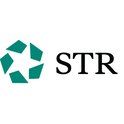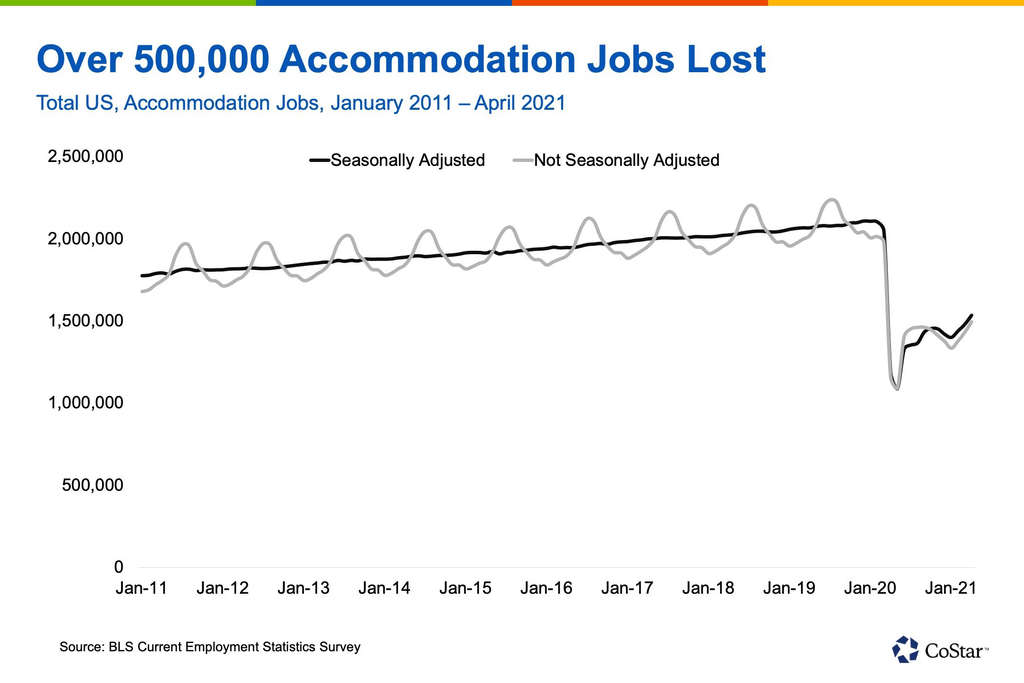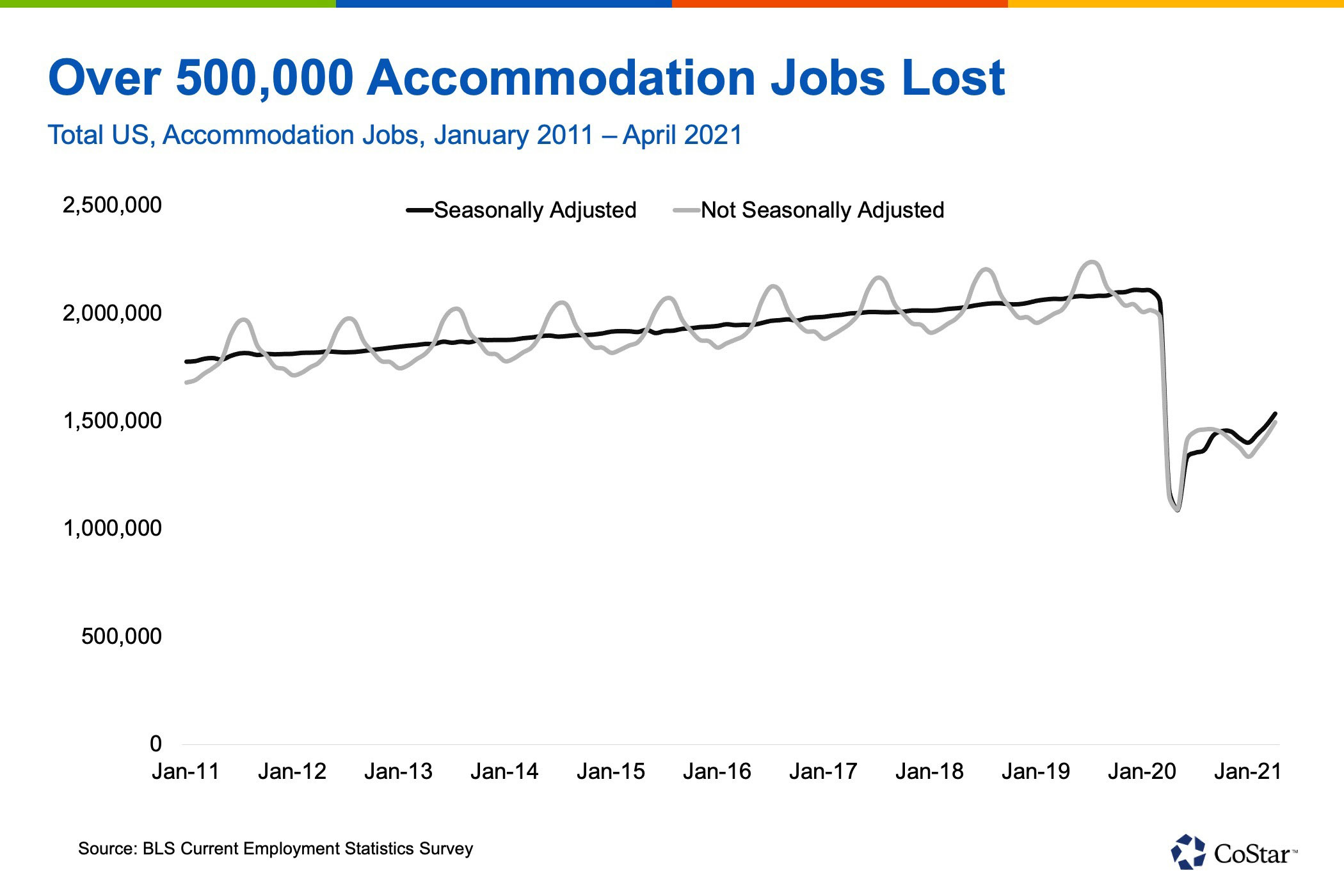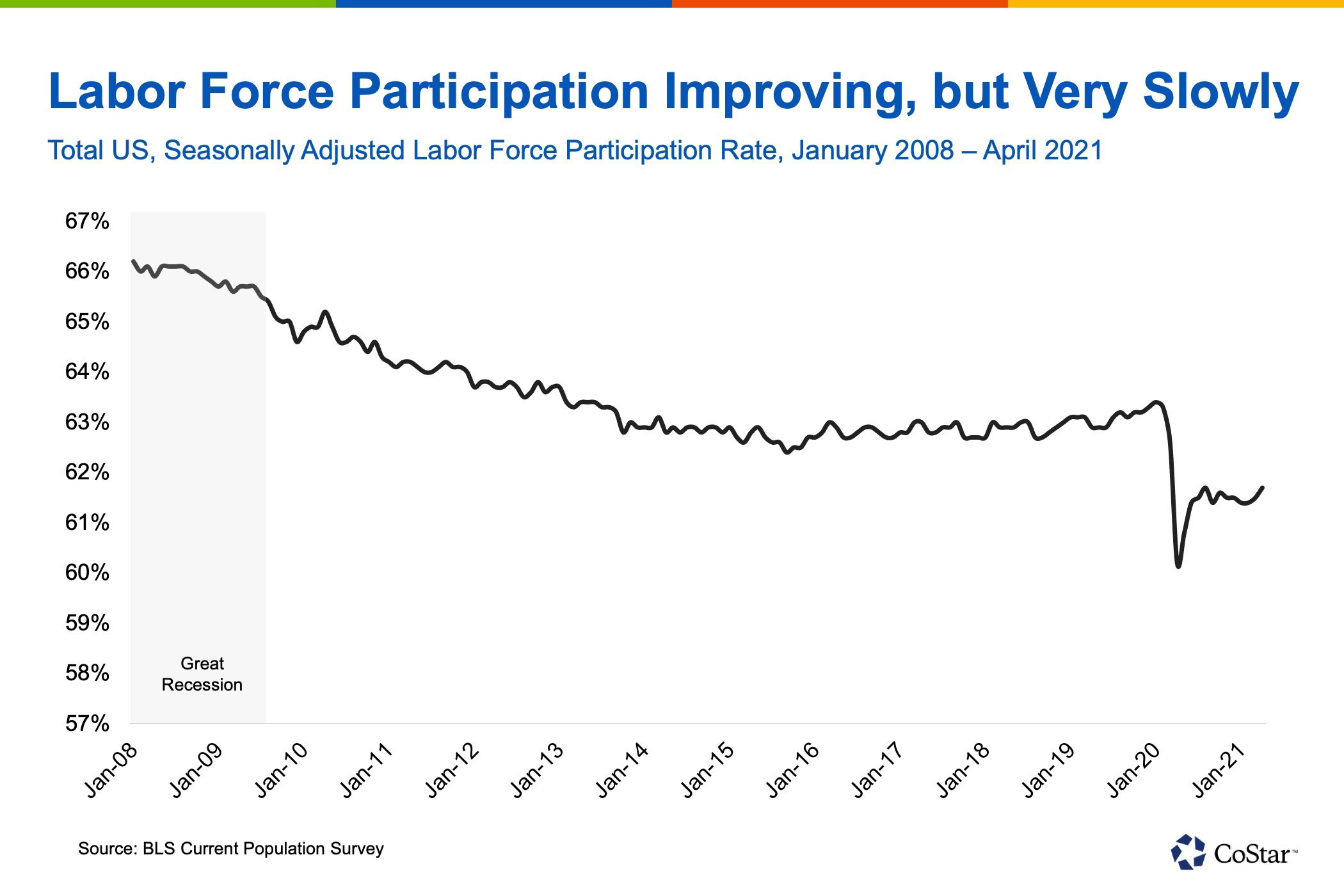Hotel Labor Market Shifts Fundamentally Due to Pandemic
Staffing Shortages Exacerbate Crisis for Hoteliers
U.S. hotel recovery has finally hit its stride, with leisure demand nearly back to normal even ahead of the summer boom and business and groups beginning to chart a course to return over summer and into fall.
However, even as performance improves, many U.S. hoteliers are finding new concerns in the labor market, with rising staffing shortages contributing to extended closures or temporarily out-of-order rooms. Given the struggles to fill these rooms over the past year, staffing problems add insult to an already injured industry.Employment Levels Well Below the Norm
Accommodation jobs as tracked by the U.S. Bureau of Labor Statistics are still well below prior year — and prior 10-year — levels. Part of that can still be explained by lockdowns and closed hotels. Certain states, such as New York, which has the most closed hotels in the U.S., and Washington, D.C., which has been very locked down, are still showing accommodation employment at less than half of 2019 levels.
Fortunately, given the recent changes in CDC guidance and the widespread reopenings across the U.S., these temporarily lost jobs should begin to reappear over the coming months, either in employment numbers or on job boards as companies begin ramp-up hiring to match increased demand.
However, Accommodation unemployment is unlikely to approach pre-COVID-19 levels in the near term, less a result of the demand for workers, but rather due to the supply of labor.Labor Force Participation the Root of the Problem
The labor force participation rate as reported by the Bureau of Labor Statistics tracks all adults over the age of 16 who are either employed — whether full- or part-time — or unemployed and actively seeking work as a percentage of the civilian noninstitutional population.
Labor force participation tracks unemployed people, i.e. people actively applying for jobs within the last four weeks. It does not track unemployment based on receipt of UI benefits, and that’s where COVID-19 can cause a disconnect.
In normal times, most states require UI applicants to look for work to receive UI benefits; these recipients would therefore be counted as “unemployed” and appear in the labor force. Like so much else in 2020, however, COVID-19 turned the traditional UI model on its head, with extended benefits and adjusted rules, so likely some part of the decline in labor force participation comes from people receiving UI benefits but not looking for work.
However, most of the decline cannot be explained away by pandemic assistance. LFP fell during and after the Great Recession and while the rate leveled by mid-2014, it never recovered its prior highs, suggesting that the last recession "reset" the labor market to some degree, with exiters who left due to poor economic conditions not returning even as the economy improved.
COVID-19 is likely to have an even bigger impact in this respect, given some of the fundamental shifts the market experienced over the past year, as many medically vulnerable workers, guardians of family or children, and early retirees exited as a direct result of the pandemic. Additionally, as with any downturn, would-be participants may try to prolong their entry into the workforce in the hope of better conditions by enrolling in post-secondary or continuing education programs.
The result is a labor crunch impacting not just the accommodation sector but also the wider labor market. While extended unemployment insurance benefits may have exacerbated short-term labor supply shortages, even an end to PUA, PUEC, and CARES programs will not bring the labor force back to 2019 levels, which is something hoteliers must keep in mind as they look to rebuild staffing levels.
About STR
STR provides premium data benchmarking, analytics and marketplace insights for the global hospitality industry. Founded in 1985, STR maintains a presence in 15 countries with a corporate North American headquarters in Hendersonville, Tennessee, an international headquarters in London, and an Asia Pacific headquarters in Singapore. STR was acquired in October 2019 by CoStar Group, Inc. (NASDAQ: CSGP), the leading provider of commercial real estate information, analytics and online marketplaces. For more information, please visit str.com and costargroup.com.




